About Coeliac (Celiac) - An Introduction
What is Coeliac (Celiac)?
Coeliac is a disease of the small intestine, the part of our digestive system that's used to absorb the nutrients from the food we eat. In a person with coeliac (celiac) disease, the lining of the small intestine is sensitive to the gluten protein. Gluten is the protein component of grains like wheat, rye, barley and oats. For a more detailed list of items containing gluten, check out the Ingredients Containing Gluten list on this web site.
For a person with coeliac (celiac), the smallest amount of gluten can do you harm; as the result is the lining of the small intestine becomes damaged. When this happens nutrients like calcium, iron, folic acid, fats, sugars and soluble vitamins are poorly absorbed.
Malnutrition, osteoporosis, depression and infertility are just a few of the knock on effects that coeliac (celiac) disease can cause especially if diagnosed late or left without treatment. There are no formal statistics kept in Australia revealing the number of people with coeliac (celiac) disease. Every text you read will quote a different figure, somewhere from 1 in 200 to as low as 1 in 50.
What Are The Symptoms Of Coeliac (Celiac)?
The symptoms often come down to the individual. Depending on the person, coeliac (celiac) disease symptoms can be severe, moderate or mild, or the person may be asymptomatic (symptom free). Many people with coeliac disease don’t know they have the condition, where others go years with persistent abdominal pain.
The disease is particularly difficult to diagnose, becuase there's no one complaint that signals you have coeliac (celiac) disease. Different people may experience different symptoms. The most common symptoms in adults include:
Anaemia (iron deficiency)
Bloating and flatulence
Diarrhoea or constipation
Fatigue, weakness and lethargy
Nausea and vomiting
Stomach cramps
Weight loss.
What Is The Cure For Coeliac (Celiac)?
Well, the bad news is, that there isn't one. There is no cure for coeliac disease. Complete abstinence from gluten in your diet is the only treatment. Once you are on a gluten free diet, your health and energy levels usually improve very rapidly.
There are pharmaceutical companies in the US trialling drugs which block the toxicity of gluten. Meaning the patient can eat what they want and not be doing themselves damage. While these drugs hold great hope, they are in the early stages of development. There is little information yet on their success, their price or when they would become generally available. So it is fair to say these miracle drugs are several years away yet.
What Causes Coeliac (Celiac)?
The cause of coeliac (celiac) disease remains a mystery. It's fair to say it's not a well understood disease. Research to date does prove however that there are strong genetic links. It does tend to run in family genetic lines. Most research to date suggests you may be born with the disease, but it lays dormant for many years. This would help to explain why most patients are diagnosed as adults and not as children.
How Do You Know If you Have Coeliac (Celiac)?
As mentioned earlier, the disease is difficult to diagnose as different patients display different symptoms.
There is only one conclusive test and that's to be referred by your local doctor to a gastroenteroligist who will perform an endoscopy and take a biopsy (samples) from your stomach and small intestines. The biopsy and several blood tests will be sent away to a lab for testing to look for the tell tale flattening of the villi projections that lline the small intestine.
The villi are connected to your blood capillaries. This is how nutrients from digested food pass in to our bloodstream. In a person with coeliac (celiac) disease, the villi are damaged and appear flattened.
Model cross section of small intestine villi.
Image referenced from: http://www.evolutionnyc.com
Your gastroenterologist will then likely subscribe a gluten free diet for a period of weeks and monitor the results. If symptoms dissapate, the gastrenterologist will likely only then state that you have coeliac (celiac) disease).
Do Not Attempt To Self Diagnose.
If you suspect you may have coeliac (celiac), under no circumstances should you modify your diet prior to seeing your doctor or gastroenterologist. You should stick to your standard diet. Modifying your intake of food containing gluten (eg: cutting back on eating sandwiches) only makes the symptoms more difficult to confirm. I repeat again. Don't do it. It's a trap for young players :-)
If your gastroenteroligist does suspect coeliac (celiac) disease, you will likely be referred by the gastroenterologist to a trusted dietician.
The Gluten Free Diet
Gluten is hidden in many of the foods we eat. You cannot and should not go it alone. It is naive to try. You will likely need the assistance of a dietician and your local Coeliac Society to identify the foods which contain gluten and to maintain a gluten free diet.
Being on a gluten free diet involves a lot more than just avoiding wheat. The only treatment is the avoidance of all gluten-containing foods. This allows the bowel lining to completely recover. This strict attention to diet must be life long. A repeat biopsy will be needed three to twelve months after starting the diet. It is important to follow the dietary advice of your specialist or qualified dietitian.
Thanks for reading.
Lee :-)


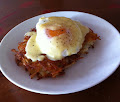


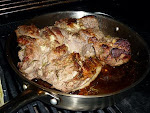

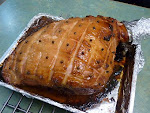


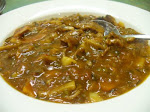






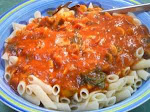
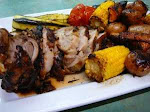

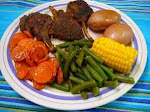
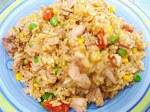






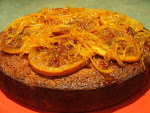
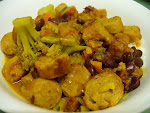



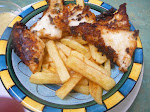


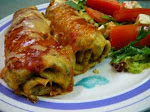
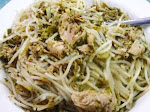

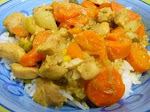
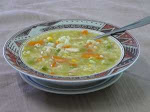
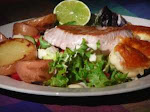
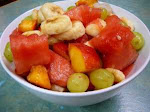
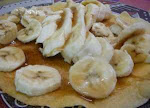
0 comments:
Post a Comment